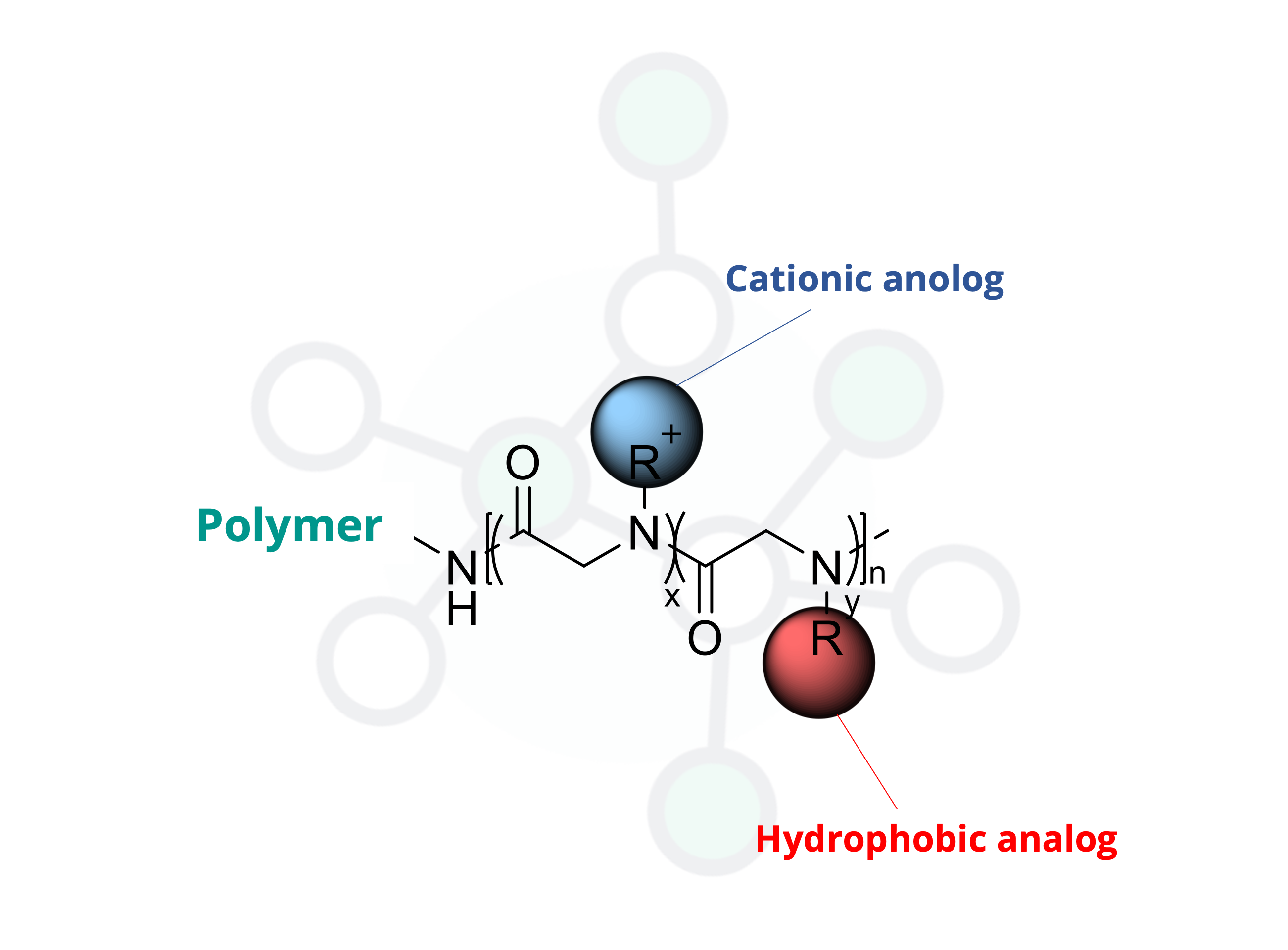Platform
Polypeptoids – New class of molecules
Polypeptoids are a new class of anti-infective molecules. The polypeptoid technology offers remarkable design flexibility, enabling precise control of the physicochemical properties of the polymers synthesized. Polypeptoid composition, size or charge are parameters that can be controlled to lead to large spectrum or specific to target microorganisms molecules.
A major breakthrough relies on the absence of development of antibacterial resistance against these new compounds.


The backbone of polypeptoids consists of repeating nitrogen-containing units, mimicking the peptide backbone but with a significant difference. In peptides, the side chains are attached to the alpha carbon, while in polypeptoids, the side chains are attached to the nitrogen atom.
The specific structure of polypeptoids gives them specific pharmacological properties making them interesting for drug design. By working on the nature of the monomer creating the polypeptoid or on the ratio of hydrophobic and cationic monomers or on the size of the molecule, we engineer unique molecules with specific capabilities.
This specificity leads to an infinite library potential
An AI implemented lead discovery platform
Thanks to the polypeptoids modular structure and AI tools, VIKYNG-AI is able to provide a variety of active ingredients to fight microbial infections in different sectors.

This platform will allow VIKYNG-AI to produce a wide variety of polypeptoid formulas in therapeutic, medical device and biocide solution sectors making the ideal platform to fight AMR and infection related diseases.
Quantitative Structure-Activity Relationship (QSAR) model has been implemented in an IA tool to accelerate our process of lead discovery and selection. Based on our internal knowledge of polypeptoids structure and our history of in vitro and in vivo results, our AI platform will deliver a wide range of molecule based on specific questions.
QSAR plays a pivotal role in the rational design of a new polypeptoid library, providing a systematic approach to understanding the relationship between the chemical structure of molecules and their biological activity. In the context of polypeptoid drug design, QSAR is employed to establish correlations between various molecular descriptors (such as size, charge, hydrophobicity, cationicity) and the desired biological activities, such as antimicrobial efficacy.
By leveraging computational tools and statistical analyses, QSAR based AI platform allows VIKYNG-AI to identify key structural features that contribute to the biological properties of polypeptoids. This information can guide the systematic variation of side chains, backbone modifications, and overall molecular architecture within the library.
VIKYNG-AI’s platform is constructed to predict the bioactivity of novel polypeptoid structures, enabling the efficient selection of candidates with optimized properties. This approach accelerates the drug discovery process by providing a rational and data-driven strategy for the generation of diverse polypeptoid molecules with enhanced therapeutic potential.

